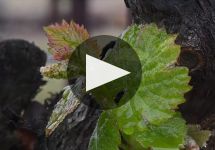Chimney Rock Elevage Red 2022
-
Robert
Parker -
Jeb
Dunnuck -
James
Suckling - Vinous



Product Details
Your Rating
Somm Note
Winemaker Notes
This wine is super expressive with aromas of blackberry, cocoa powder with hints of mint, clove and espresso. Ripe and intense with flavors blackberry, mocha and a hint of vanilla. In terms of mouthfeel, it is medium-bodied with super silky tannins, a round and viscous mid-palate ends with a nice long finish with some bright acidity in the end.
Blend: 58% Merlot, 32% Cabernet Sauvignon, 10% Petit Verdot
Professional Ratings
-
Robert Parker's Wine Advocate
Chimney Rock's 2022 Elevage Estate Grown is a blend of 58% Merlot, 32% Cabernet Sauvignon and 10% Petit Verdot that spent 18 months in 90% new French oak. Scents of hickory smoke and clove lend an almost bacony cast to the ripe black cherry fruit on the nose, while the full-bodied palate is lush and creamy, slightly loosening and becoming less smooth on the softly dusty-velvety finish.
-
Jeb Dunnuck
Aside from the Stags Leap District Cabernet Sauvignon, the 2022 Elevage is the only blend in the lineup and checks in as 58% Merlot, 32% Cabernet Sauvignon, and 10% Petit Verdot that spent 18 months in 90% new French oak. It has a juicy, upfront style in its red and black cherry fruit as well as chocolate, spicy oak, and savory herb-driven aromas and flavors. These carry to a medium-bodied blend that has a charming, forward mouthfeel, a nicely balanced style, a kiss of firmer tannins, and outstanding length. It's a spicy, complex effort that will benefit from just a handful of years in the cellar and then be best drunk by 2032.
-
James Suckling
The nose gives aromas of blackberries, mulberries and cedar. The palate is full-bodied with firm tannins and acidity, showing notes of mocha, graphite and spices.
-
Vinous
The 2022 Elevage is terrific in this vintage. I imagine it benefits from its lower production overall and a blend that includes Merlot and Petit Verdot, both of which add terrific mid-palate presence and weight.
Other Vintages
2021-
Jeb
Dunnuck -
Wine
Spectator -
James
Suckling - Vinous
-
Robert
Parker
-
Robert
Parker -
Jeb
Dunnuck -
Wine
Enthusiast -
James
Suckling -
Wine
Spectator
-
Wine
Enthusiast -
Jeb
Dunnuck
-
Wine
Enthusiast -
Wine
Spectator -
James
Suckling
-
Robert
Parker -
Wine
Enthusiast
-
Tasting
Panel -
Wine
Enthusiast -
Robert
Parker
- Vinous
-
Robert
Parker
-
Wine
Enthusiast -
Robert
Parker -
Wine
Spectator
-
Wine
Spectator -
Wine
Enthusiast -
Wine &
Spirits
-
Wine
Enthusiast
-
Robert
Parker
-
Wine
Spectator
-
Wine
Spectator

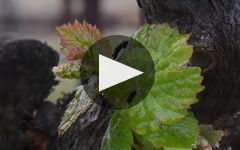

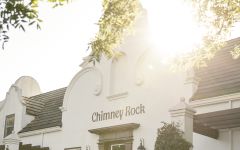
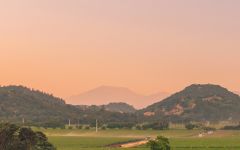
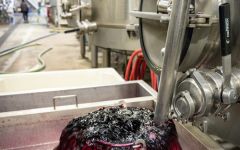
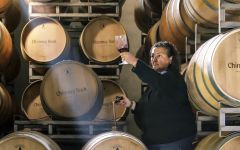
Situated on the famed Silverado Trail in Napa Valley's renowned Stags Leap District, Chimney Rock is recognized as one of the world's premier fine wine producers. Chimney Rock was established in 1984 with the goal of creating wines that emulate the quintessence of Stags Leap District and epitomize dualities of power and grace and finesse and muscle. The estate's location in the Stags Leap District, Napa Valley's smallest and most acclaimed sub-appellation, allows winemaker, Elizabeth Vianna to capture this unique terroir and create wines that rival the most important wines of the world. Chimney Rock is a Terlato Family winery and embodies the family's dedication to producing wines of exceptional quality.

One of the world’s most classic and popular styles of red wine, Bordeaux-inspired blends have spread from their homeland in France to nearly every corner of the New World. Typically based on either Cabernet Sauvignon or Merlot and supported by Cabernet Franc, Malbec and Petit Verdot, the best of these are densely hued, fragrant, full of fruit and boast a structure that begs for cellar time. Somm Secret—Blends from Bordeaux are generally earthier compared to those from the New World, which tend to be fruit-dominant.

Legend has it that quick and nimble stags would escape the indigenous hunters of southern Napa Valley through the landmark palisades that sit just northeast of the current city of Napa. As a result, the area was given the name, Stags Leap. While its grape-growing history dates back to the mid-1800s, winemaking didn’t really take off until the mid-1970s after a small but pivotal blind tasting called the Judgement of Paris.
When a 1973 Stag’s Leap Wine Cellars Cabernet Sauvignon won first place against its high-profile Bordeaux contenders, like Chateau Mouton Rothschild and Chateau Haut-Brion, international attention to the Stags Leap District of Napa Valley escalated rapidly.
The vineyards in this one-of-a-kind wine growing region receive hot afternoon air reflecting off of its eastern palisade formation. In combination with the cool evening breezes from the San Pablo Bay just south, this becomes an optimal environment for grape growing. While many varieties could thrive here, Cabernet Sauvignon and Merlot dominate with virtually no others, save for a spot or two of Syrah.
Stags Leap soils—eroded volcanic and old river sediments—encourage well established root systems and result in complex, terroir-driven wines. Stags Leap District reds have a distinct sour cherry and black berry character with baking spice and dried earth aromas, and supple tannins.
